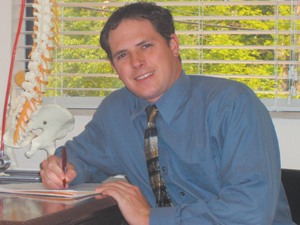TMJ DYSFUNCTION
 Have you ever tried opening your jaw and notice a pain sensation or a clicking noise? If your answer is yes, then you could have what is called TMJ or Temporomandibular Joint Dysfunction. The cause of this problem can be dental related, faulty dentures, emotional strain (constant biting or grinding teeth), or tight and imbalanced muscles of mastication in the jaw. It is characterized by hypomobility or decreased movement in the jaw. You can test this by trying to place three fingers in your mouth from top to bottom. If you cannot, then more than likely, you have TMJ, or may have it in the future. What I do to check for it is to observe the jaw when opening and closing. I look to see if the jaw is protruding, check for a different chewing pattern, and see the pattern of the jaw when opening and closing. I then feel the joint segment while the patient opens and closes the jaw to designate if there is any clicking, or tenderness in any of the facial muscles.
Have you ever tried opening your jaw and notice a pain sensation or a clicking noise? If your answer is yes, then you could have what is called TMJ or Temporomandibular Joint Dysfunction. The cause of this problem can be dental related, faulty dentures, emotional strain (constant biting or grinding teeth), or tight and imbalanced muscles of mastication in the jaw. It is characterized by hypomobility or decreased movement in the jaw. You can test this by trying to place three fingers in your mouth from top to bottom. If you cannot, then more than likely, you have TMJ, or may have it in the future. What I do to check for it is to observe the jaw when opening and closing. I look to see if the jaw is protruding, check for a different chewing pattern, and see the pattern of the jaw when opening and closing. I then feel the joint segment while the patient opens and closes the jaw to designate if there is any clicking, or tenderness in any of the facial muscles.
Pain coming from the jaw can radiate to the back of the head and cause headaches. It can also radiate to the neck, eyes, and/or shoulders. Tinnitus, ear pain, vertigo, dysphagia, sore throat, arm numbness, low back, sinus, and tooth pain may accompany this syndrome. X-rays are usually not necessary unless there is an underlying dental problem. One should go see a chiropractor first to see if the problem is musculoskeletal and if it isn’t, then a referral to your dentist can be made. You could go to your dentist first, but, whatever you do at least get an opinion from both.
Initial/acute treatment includes; ice, TENS, manipulation, and a vapor coolant spray over the joint. Sub-acute phase treatment includes; trigger point therapy, ultrasound (deep heat), facial massage, myofascial release to the involved muscles, jaw manipulation and cervical/thoracic spinal manipulations, resisted jaw opening and closing exercises, and Myocalm muscle relaxing supplementation. If conservative therapy does not respond positively after at least 3 treatments then referral for dental and/or surgical consultation, although rare, may be necessary. If you have or know someone who might have TMJ then don’t wait for it to get better on its own, it can only get worse.
Until next time, I am Dr. James P. Nill, DC.
Take care and have a healthy day.
If you or anyone you know has any questions or would like to know more of what I can do for you, then give me a call to set up your free initial consultation. Again, please contact me by phone at 260-459-2205 or by e-mail at drnill@nillfamilychiropractic.com. If you have any questions or if you want to come in for the free consultation, the address is: Nill Family Chiropractic and Wellness Center at 4656 W. Jefferson Blvd. Suite 240 Fort Wayne, IN 46804. Also, feel free to check out our website to see all that we have to offer at www.nillfamilychiropractic.com. References: Huff L. and Brady D.M. Instant Access to Chiropractic Guidelines and Protocols Mosby: 1999; 52-56.
- Community Invited To Paint Rocks For Urban League Project - April 26, 2024
- The “Bad Guys” In Your Garden & What To Do About Them - April 26, 2024
- Why Voting In The Primary Election Matters - April 26, 2024


